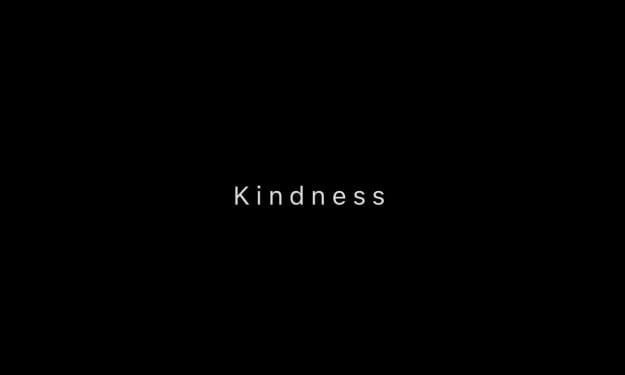Six Habits of Deeply Miserable People
Psychologists say these are the giveaways to watch out for.

The fact is that many of us sleepwalk through life, totally unaware that actually, we’re not happy at all. We have all the trimmings of the perfect life — we have the right hobbies, we get the promotion, we have 2.4 children, a golden retriever, and a white picket fence.
But truthfully told, we’re miserable.
Here are the six most common habits of truly unhappy people. If you spot yourself exhibiting any of these, it may be time to reevaluate your life and what brings you joy.
1. You Lash Out at the Smallest Provocation.
This is a typical one. Have you ever found yourself flying into a rage because of something really small, like traffic? The worst that can happen is you’re a few minutes late, but you’re still sitting in your car, swearing like a sailor with steam coming out of your ears because some idiot cut you off.
If you notice that you’re frequently getting really angry about events that actually aren’t that big a deal, it’s likely there’s an underlying cause.
Overreactions are often a sign that you’re stressed or tense. Think of your mind as a cup that is nearly overflowing. It only takes the smallest splash to make everything spill over.
Of course, you didn’t really overreact because you stubbed your toe. You overreacted because there was already a lot going on to make you upset — the toe stub was just the cherry on top.
Take stock of your situation: what’s causing you stress? What’s making you feel unhappy? Determining the root origin of your overreaction will do more good in the long run than just shouting swear words.
2. You Find Excuses Not to Take Risks.
Yesterday evening, instead of attending a friend’s virtual birthday party, I scrolled through Twitter. I love my friend, and I know browsing Twitter stresses me out. So why was I doing it?
When we’re unhappy, we look for ways out of anything that might be even slightly more energy than we think we have. You don’t like to take a chance on anything uncertain, because your negative mindset makes you look for ways it could go wrong instead of anticipating the joy you might feel.
If you notice that you’re finding reasons not to do things that you used to enjoy, probe yourself to find a deeper reason. What’s really going on? Do you genuinely not want to do it, or are you just looking at it from a negative perspective?
Even if you don’t feel up to it, forcing yourself to do things that scare you a bit can be a good way to shock your system and prove to yourself that you still love doing these things.
3. Nothing is Ever Your Fault.
Of course, nobody likes to be at fault. But people who are chronically unhappy will never admit that they did something wrong. If you’re noticing that you really struggle to take the blame for things that were probably your mess-ups, it’s likely that you’re unhappy.
This is because when you’re unhappy, it’s really difficult to open the door to more bad feelings. You don’t want to feel the shame that’s associated with doing something bad. It’s even possible that by admitting you did something wrong, you feel you’re admitting to being a bad person altogether. Apologizing puts you in a vulnerable position.
Happy, well-adjusted people are perfectly capable of looking at a situation and realizing they messed up. Unhappy people struggle much more to open up and admit fault.
If you struggle to apologize for things even when they’re really your fault, try to notice when other people do it. Realizing that nobody will resent or hate you for apologizing is often the best way to work up the nerve to do it.
4. You Try to Anticipate Future Problems.
Happy people are capable of living fully in the moment. They appreciate what they have, and they don’t need to panic about the future.
Unhappy people, by contrast, are always looking for ways things could get worse. This is because if you’re unhappy, you believe that by anticipating potential problems, you can prepare yourself from further unhappiness.
The truth is that you’re only borrowing trouble. While it is helpful to consider worst-case scenarios on occasion, it’s not healthy to always jump to the worst possible conclusion every time.
If you notice that when good things happen, you immediately start worrying about how they can go wrong, it’s likely that deep down, you’re unhappy. Try to experience joy in the everyday moments of your life.
5. You Never Want to Try to Change.
Happy people love to try — it doesn’t matter what. Unhappy people are afraid to.
For example, happy people will often work on themselves — building relationships by staying in touch with their friends, working out frequently, picking up new habits that bring them joy.
Unhappy people are fundamentally coming from a place of fear. If you’re unhappy, it’s likely that you don’t want to try new things for fear you’ll fail at it. You feel a lack of control over your own life, and prefer to sit back and wait for life to happen to you, instead.
If you feel any hesitation when it comes to improving yourself or trying new things, question that feeling. What makes you hold back? If it’s fear, try to meet your fear halfway. For instance, you can try one new thing per week, whether it’s just going for a five-minute walk or taking a painting class.
6. You Can’t Feel Gratitude for Anything.
This is the most persistent trait of deeply miserable people — you don’t have any capacity to feel gratitude, whether it’s for an act of kindness or even just a beautiful scene in nature.
When you’re unhappy, you’re deep inside your own head. You’re anticipating bad things to happen, you’re afraid of failing, you’re overreacting to any tiny provocation. You’re not in the right headspace to appreciate when unexpectedly good things happen, because you’re too busy worrying about yourself.
It’s hard to be grateful when everything feels dismal, especially yourself. But simply recognizing it as an area to work on can be a great place to start. Choose one thing per day — write it down, or just say it aloud. You can be grateful for a person, an event, or even your cat. Focus on what you do have instead of worrying about what you don’t.
Feeling gratitude is one of the best feelings in the world, and actively choosing to practice it is one of the best ways to lift yourself out of unhappiness.

Being unhappy is exhausting. It’s an active mental state that you may not even realize you’re keeping up. Especially if you have all the things society tells you that you need in order to be happy, it can be really hard to spot when you have all those things and you’re still unhappy.
For that reason, it’s easier to recognize and actively work on changing by noticing specific symptoms of your unhappiness.
The signs are clear: you overreact; you’re afraid to take risks; you refuse to admit fault; you look for reasons to worry; you hate the idea of changing; and you lack the ability to be grateful for anything, no matter how big or small.
The good news is once you’ve noticed any of these symptoms, you can begin to work on changing them. It won’t be easy, but it’s worth it.
About the Creator
Zulie Rane
Cat mom, lover of pop psychology, freelance content creator. Find me on zuliewrites.com.






Comments
There are no comments for this story
Be the first to respond and start the conversation.